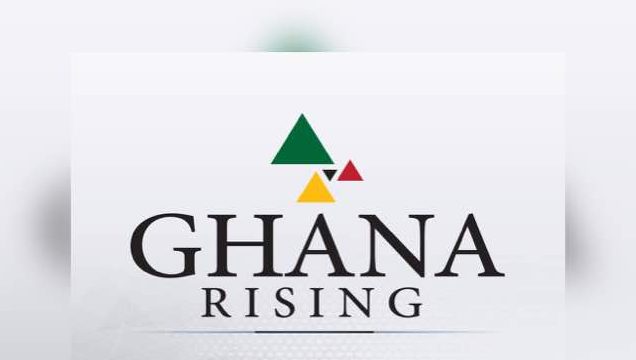
Selorm Adonoo writes: Ghana Rising – Stimulating the growth of indigenous-world class businesses

A quick scan through the 17th edition of the Ghana Club 100 companies shows that just a handful of wholly-owned Ghanaian companies made it there. By wholly-owned Ghanaian companies, I mean those founded by Ghanaians and incorporated in Ghana. The league is dominated by big multinational companies operating in the telecommunications, mining, oil and gas, and financial services sectors. A few shining examples of real Ghanaian companies also made it to the top 100, and a lot of them were rural banks.
I was quite surprised at the poor showing of agriculture, and agribusiness companies. To have about 60% of our folks engaged in farming, and not having any company that processes produce from these farmers among the list of top 100 companies in Ghana, apart from Blue Skies, provides some idea of what the problem with our country and its economy is.
Imagine a situation where companies in the agribusiness value chain were dotted along every step of the process, from planting through harvesting to processing and packaging, and what that would mean for the youth unemployment scourge and our never-ending foreign exchange woes. Our economy would have been buoyant. And making an economy flourish is often a deliberate decision by governments, it almost never happens by chance.
The current complexion of our economy says little about any deliberate attempt by governments to create indigenous business champions of our economy that even will spill over and make inroads into other countries. While it could be argued that governments do not have to be seen actively providing support to companies to make them competitive, it is also true that without a strategy by government to grow its local industries, we will continue to be consumers of other people’s products and keep creating jobs in other countries.
A recently published report by Konfidants, a diversified international advisory firm, revealed that only 18 percent of goods sold in Ghana’s leading supermarkets originate from the country. The findings from the research confirmed a common observation: There were not enough Made-In-Ghana goods in the stores. A total number of 7,462 brands (from 23 product categories) were counted across all 8 supermarkets surveyed. The report said the 23 product categories had high local production potential.
For a country that launched a ‘Buy made in Ghana’ campaign few years ago and currently in the middle of a ‘See Ghana, Eat Ghana, Wear Ghana’ project, one would have expected better results from any study to ascertain shelf space accorded made in Ghana products in malls and supermarkets in the country. But commanding large shelf space does not happen by chance.
Individual companies are seen trying to compete with conglomerates on their own. It is easy to see why they cannot be competitive against such companies owing to the latter’s bigger systems, more resources and the advantage of economies of scale. Although many of the local companies have said it is tough to compete, a surprising revelation from the Konfidants report is that in 73% of product categories (selected for price comparison analysis), local goods were cheaper than imported goods, and of comparable quality.
I am not sure anybody is expecting government to dole out money to local companies to make them do better and take on competition.
Deliberate Government Policy
What is needed is a deliberate government policy to complement the efforts of these individual local companies and provide them some incentives to push the Ghanaian industrialization agenda.
The policy must first of all seek to re-orient the Ghanaian mindset about its own produce or goods. The thinking that anything Ghanaian is inferior, and everything foreign is better and of superior quality must be dealt a deathblow albeit subtly. A mental re-wiring leading to attitudinal change is inevitable in any quest to project made in Ghana goods. This should be made to reflect in our speech, taste, opinion and expenditure. If we do not enjoy and spend on made in Ghana goods, we cannot expect others to do so for us. If we do not talk up our own goods and products, it will be difficult to recruit others to do so for us. Policy must affect our conversations about made in Ghana products.
The policy must also identify which areas we will want to develop or command mastery. This should be communicated widely, and opportunities offered to people interested to pursue same. Others have gone in for technology (Japan), health (Cuba, UAE), and agriculture. Some have decided to position themselves as finance and investment hubs (Singapore, Hong Kong). It appears a low hanging fruit we may want to leverage on is the current wave of agribusiness interests across the country and take advantage of our God-given arable land; perhaps, we have some competitive advantage there.
We must first support and then challenge our local industries to take up the big ticket projects and supply contracts. While it may be true that the quality at the beginning may not be top notch as expected, we should be willing to have healthy tolerance for them to grow. Is this mediocrity? No, it is building the Ghanaian business and giving the local industry confidence. Only Ghana can do it for Ghanaian businesses.
After all, when did KIA, Hyundai and the likes become so prized and quality cars? Just few years ago, they were not considered serious brands, but support from policy and consistency at improvement helped them make it to the top.
In a recent interview on the Citi Breakfast Show, Chief Executive of the Ghana EXIM Bank, Lawrence Agyinsam was categorical about why Ghana appears to be doing well in the pharmaceutical sector. According to him, the country’s good showing is attributable to what he described as ‘conscious effort’ by successive governments to prioritize and encourage investment in the sector.
As a result, the pharmaceutical industry wields huge potential to being a notable contributor to the bank’s vision to double Ghana’s non-traditional exports from the current 2.4 billion dollars to 5 billion dollars by 2022. It was even more heartwarming when he told Bernard Avle that Ghana was gently becoming self-sufficient in its pharmaceutical needs, and extending its reach to neighbouring Burkina Faso, Nigeria and Mali.

It was rich coming from him that it took ‘conscious effort’ to encourage investment in that space. What this translates to is that, we have indigenous companies that are producing and catering for the country’s pharmaceutical needs and progressively owning parts of foreign markets. This will mean more expansion for those indigenous companies, more job creation, more foreign exchange for Ghana, less dependence on imports, and better economy. This is an example of how deliberateness or ‘conscious effort’ can help the ‘Ghana Rising’ agenda!
Quality of ‘Made in Ghana’ goods
As we endeavour to do this for our local businesses, they must also undertake to improve upon their quality and be willing to take on the world. In no time, they must be ready to compete very favourably with world class businesses in their line of trade. The policy must permeate every facet of society and draw useful linkages and connections to all aspects of our lives; school curricula must be couched to instill this made in Ghana consciousness in our kids right from their young age.
The policy must affect our media and creative arts industry where it will inspire a greater willingness to project the Ghanaian identity and industry in story lines and commentaries. Though subliminal, media and education have enormous power to change mindsets to where the principal wants it. Our movie industry must be encouraged through policy to churn out content relevant to this agenda.
Imagine what the effect of the above would do to the Ghanaian identity and business. Ghana Rising would no longer just be an aspiration but a reality that we will live!
Asian Tigers
Ghana does not have to re-invent the wheel. It has been done elsewhere, especially among the so-called Asian tigers.
The example of South Korea is always an inspiring one. The country transitioned from third to a first world economy in one generation. I once asked a young lady in Seoul why almost every person I came across owned a Samsung phone and not an iPhone of the same generation, though the former was slightly more expensive. Her answer surprised me. She said iPhone was equally popular in Korea, but because Samsung was Korean, they liked it and had to buy it. The story is not different for home appliances. And the cars they use are mostly KIA and Hyundai – Made in Korea cars! Policymakers at a point in that country’s history decided to give a voice to their own, and the result is what we see today.

Internet photo
South Korea which was once an agriculture-dominated economy like ours, spent much of the 20th century driving modern industries such as electronics, robotics and software development. And according to the World Bank, this strategy paid off; the country’s GDP grew by an average of 10% per year between 1962 and 1995 and it is now regarded as one of Asia’s most advanced economies. It is also important to note that within this period, they made it a point to prioritize good governance.
This deliberate government policy we are talking about must be easy to understand, have direction, transcend political traditions and tenures. It must also very crucially, prioritize good governance, tough regulation and genuine anti-corruption measures.
Citi FM/TV’s ‘made in Ghana’ campaign
It is therefore welcome news that the Citi FM and Citi TV team has made it a mission to ensure made in Ghana products occupy more shelf space in our supermarkets and malls. The stations’ programming is geared towards this agenda, and the recent ‘This is Ghana’ exhibition was a real eye-opener as over 70 young Ghanaian entrepreneurs dealing in a variety of products came to showcase their wares. It was amazing to see the entrepreneurial acumen of Ghanaians at play. As discussed above, these individual efforts are good but without a deliberate government policy to catalyze their growth, they will struggle to rise, and may be killed by competition.
This certainly is the reason behind Citi FM/TV’s next big event called ‘Ghana Rising.’ The charge is obvious when one peruses the program details: To energize local business participation to help create local businesses that can transcend the borders of Ghana. In essence, to get the right commitment from policymakers to support an agenda that will create indigenous business champions.
The September 19 event will feature panel discussions on four thematic areas namely: Finance, Oil & Gas, Agriculture & Agribusiness and Green Economy.
The summit will bring together stakeholders, policymakers, and entrepreneurs to examine opportunities for local businesses to grow, push for the creation and implementation of policies that place local businesses at the centre of national development, and devise ways to leverage the Africa Continental Free Trade Area (AfCFTA) for our local businesses to scale into global conglomerates.
In conclusion, this is perhaps what our country needs at this time to provide some hope and help us anchor our aspirations of taking charge of our own economy by raising local business giants that can compete globally, and project the Ghanaian entrepreneurial identity.
Source: citifmonline.com






